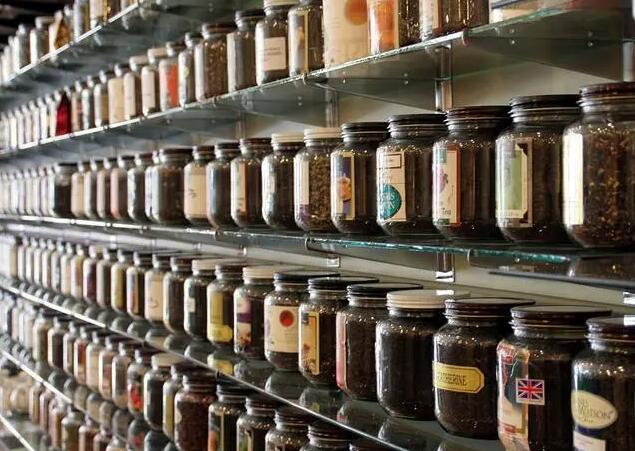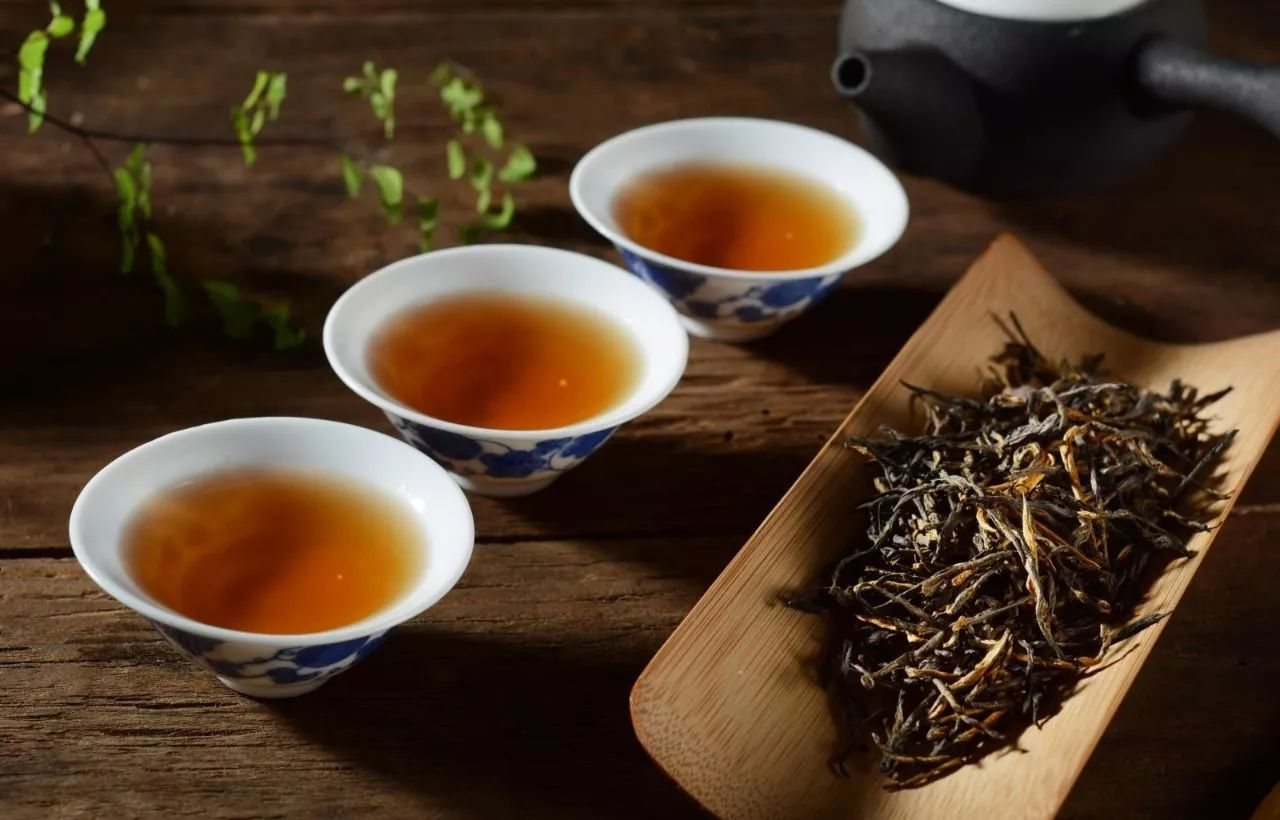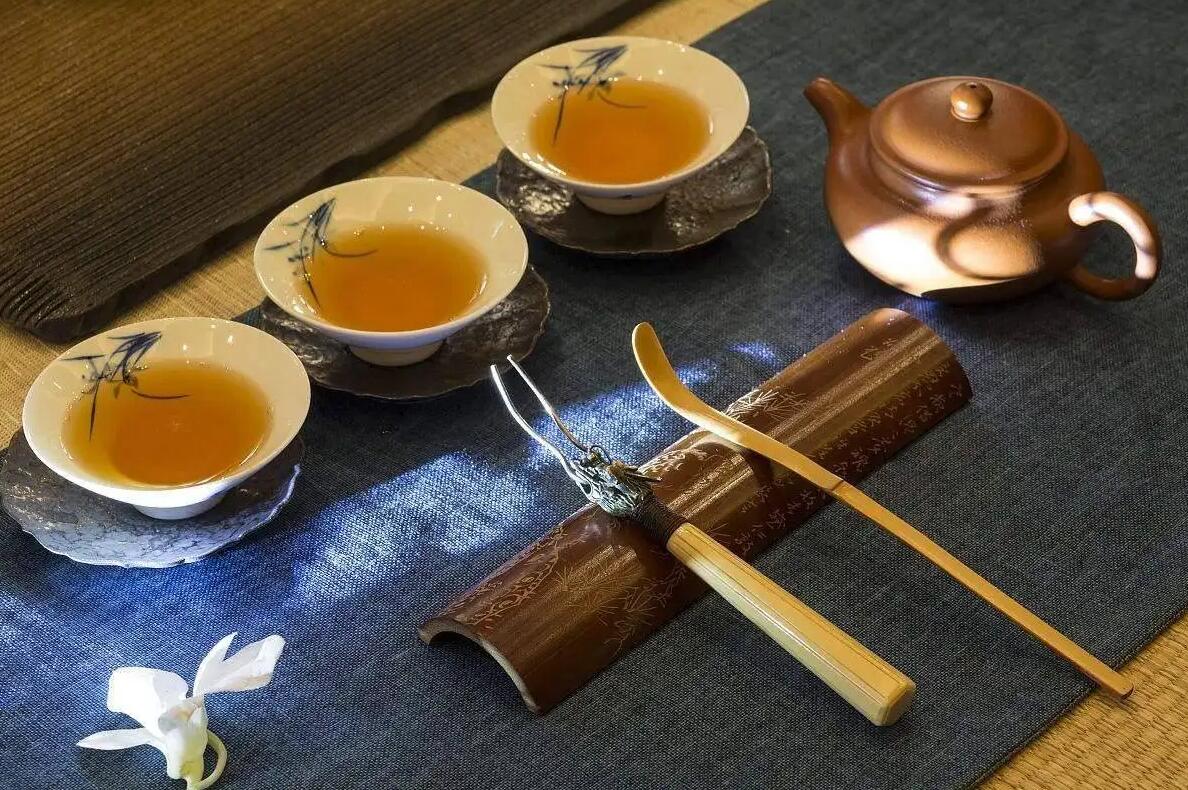When people participate in tea related activities, they actually experience an aesthetic process consisting of many art forms, including painting, music, poetry, sculpture, and interior architectural design. During this process, their eyes, ears, noses, fingers, and taste buds appreciate and enjoy all the different aspects of beauty imparted by tea. We divide these beauties into four aesthetic dimensions, namely, the 'purity'(洁), 'serenity'(静), 'integrity’(正) and 'elengance'(雅) in Chinese Cha Dao.
Purity: This is a prerequisite in the aesthetics of Chinese Cha Dao and means to be pure and clean from inside out.
Serenity: This is an indispensable element in the aesthetics of Chinese Cha Dao and helps to refresh our hearts and regain energy and health.
Integrity: This is an essential condition in the aesthetics of Chinese Cha Dao and reminds us to cultivate our morality.
Elegance: This is the external expression m the aesthetics of Chinese Cha Dao and natures us to behave gracefully in daily life.
Beauty of Purity (洁)
Firstly, purity indicates the clean and pure character of tea. Tea grows in mountainous areas where it breathes the clouds and mists, and absorbs the aura of heaven and earth. Nature bestows purity on tea, and we reflect such character by brewing tea in a clean environment, drink it with clean hands and clean Chiniese tea set. Clean tea leaves provide us with clean tea liquor, and we must appreciate the clean tea liquor with a pure mind, so that the tea may baptize our heart and bring inner purity. This is why many scholars have written eloquently in praise of the purity of tea:
'Tea as it is…brings leisure and purity with its light taste, and gives people serenity with its extraordinary charm.'
-Treatise on Tea by Emperor Huizong of the Song Dynasty
'It is pure and stainless in nature; it is a drink that cleanses earthly worries.'
-Wei Yingwu, poet of the Tang Dyansty
'Tea is symbolic of earthly purity, requiring the most fastidious cleanliness in its preparation, from picking, frying and preserving to its final infusion and drinking…'
-On Tea and Friendship by modem writer Lin Yutang
Secondly, purity bears the meaning of respect and sincerity. In ancient times, Royalty and nobles would fast and take ablution for ceremonies, rituals or sacrificial practices in order to pay their respects to ancestors and divinities. Similar practices can be found in Confucianism, Buddhism, and Taoism. Cha Dao also places an emphasis on showing respect, on practicing sincerity during tea related activities. Only when one participates in the activities with a pure, respectful and sincere heart can the benefits cultivate both body and mind.
Thirdly, purity requires both the tea master and his guests to neat and tidy when they sit and drink tea together. This attitude has been advocated by scholars since ancient times, and has been adopted throughout Asia along with Cha Dao itself. Japanese tea ceremony, too, insists upon cleanliness and tidiness of the environment. Before welcoming the guests,a Japanese tea master would wipe up leaves and stones in the courtyard and clean the tearoom, even the dust on the firewood used for boiling water would be washed away. Via this process, the tea master creates physical and mental cleanliness and reaches a state of inner purity. The Japanese tea classic Southern Record summarizes this process as follows:
'The purpose for practicing tea ceremony is to realize the Amida (the essence of Buddhahood) within the tearoom and establish an ideal earthly haven.'
In this sense, purity embodies the idea of Buddhism, and it shows the Zen conception of 'harmony between man and nature, through a unique cultural form. Purity reflects the similarity between the Japanese tea ceremony and Chinese Cha Dao.
Beauty of Serenity (静)
Chinese Cha Dao leads people to a stage of self-cultivation and self-pursuit. It imparts the knowledge of how to savor the flavor of life from a cup of tea, and from there how to begin to understand the mysteries of universe. Creating a serene and peaceful mind via the practice of Cha Dao plays an important role in cultivating personality and character. The simple process of boiling water, cleansing and warming tea utensils, then brewing tea and serving tea, appeases uneasy feelings and fickle thoughts. One should move slowly, steadily and orderly, and let the breath and mind follow the movements. The combination of external motion and internal serenity naturally reflects the beauty of Cha Dao, and farms an integral part of the aesthetics of Chinese Cha Dao.
Tea has an intrinsic character of freshness, elegance and peace.It helps to dispel distracting thoughts, then calm and cultivate the mind. This is consistent with the idea of 'quietness' in the eastern philosophies and 'introspection' in Buddhism. Serenity gives people many benefits, and we divide these benefits into three distinct aspects:
Firstly, serenity refreshes heart. The hustle and bustle of modem life is full of rush and hurry. In a high-paced state of life, people feel more and more stress from both work and family. With all the pressures and distractions, the finer aspects of life are forgotten. We become out of balance, and tend to be increasingly blundering as we focus only on how to achieve success. Such a lifestyle gives rise to the phenomenon of 'sub-health' now so common it is almost universal. But, if people know how to lay down burdens and relax, how to sit and have a cap of re-freshing tea,they may find a moment of serenity for the heart and soul within life's turmoil. And within the heart and soul is the only place serenity can truly be found or maintained. So, enjoying the peaceful, tranquil, quiet, calm atmosphere created by tea allows people to practice freedom from anxiety, and to regain energy and health.
Secondly, serenity nurtures wisdom. It seems that when people come to understand the connotations of 'serenity', they gain a holistic insight, comprehend the vicissitudes of life, and become open-minded and wise. At the ancient Chinese saying goes:
'Live simply with great ambition; fare serenely toward the highest goal.'
-Zhuge Liang (Kongming)
'With quietude one comprehends all movement, with emptiness takes in ten thousand scenes.'
-Su Shi
One may see through the principles of different kinds of phenomena in the world, and ultimately grasp the essence and true meaning of life, just by quietly observing and serenely contemplating.
Thirdly, serenity stimulates the contemplation of Tao. We say 'The Tao that can be spoken is not the Eternal Tao', which means that Tao is not taught by others, but contemplated by oneself Throughout the ages,Taoist priests,monks and Confucians would regard serenity as an inevitable road towards Taoism; it fosters modesty, tolerance, and observation, and it leads us to a state of pondering over Tao, As the ancient saints put it:
'Like vegetation that luxuriantly grows, but returns to the root (soil) from which it springs. To return to the root is Repose; it is called going back to one's Destiny.'
-Tao Te Ching by Lao Tzu
'The still mind of the sage is the mirror of heaven and earth, the glass of all things.'
-Outer Chapter :The Way of Heaven by Chuang Tzu
Beauty of Integrity (正)
The Book of Rites: Great Learning set down eight essentials for the cultivation of one's morality and intellect and the development of one 's career: ' investigate things, extend one's, 'knowledge', rectify one's heart', cultivate one's character, regulate one's family', order well one's state and bring peace to the world.
Among these eight essentials, the first two are the keys to the cultivation of one's morality and intellect, and the latter four are critical to the development of one's career. Rectify one's heart' is a link between internal character and external fulfillment.
Mencius once said: I am skillful in nourishing my vast, flowing passion-nature (The Works of Mencius: Gong Sun Chou Part I). This 'vast,flowing passion-nature indicates integrity, with which one would be able to remain calm and steady in the face of outside temptations, disasters,or threats. It is a state of 'nu-moved-ness', in which one would not be dissipated by wealth or honor, nor moved from one's principles by poverty or low status, and never distorted by authority or might.
We here further divide integrity into three meanings:
The first meaning is correctness. To use the words from the works of Buddhism:
'(He) received heretcs but never strayed from the right faith. Though he knew worldly classics, he always took joy in the Buddha Dharma.'
-Vimalakirti Nirdesa Sutra: Expedient Upaya of Teaching.
It shows the idea of the correct faith and conviction of Buddhism. In order to understand all things in the universe, and comprehend a certain kind of spirit, one should be guided by correct thoughts and ideas. People may make mistakes or do something wrong from time to time, but it is very important that we endeavor to rectify those mistakes as soon as they are observed. As Confucius once said, Be not ashamed of mistakes and thus make them crimes.
The second meaning is righteousness. One should bear the spirit of righteousness in mind and must never act against one's conscience, or act harmfully to people, or deceive oneself and others, or cherish evil designs. This holds true for anyone who practices Cha Dao. Being honest, upright, pious, pure, and sincere is fundamental to pursuit of a higher stage of Cha Dao. Such a spirit is also reflected in Buddhism and Confucianism which emphasize uprightness and honesty.
The third meaning is moderation. Moderation can be interpreted as a combination of impartiality and justice. In China, moderation is in line with the Confucian ethic of 'Zhong Yong', which was explained by one Confucian scholar of the Song Dynasty, Zhu Xi, In his book Commentaries on the Four Books:
'Zhong is a state neither leaning to the left nor to the right, neither excessive nor deficient; and Yong is a status of being mediocre and ordinary.'
This indicates that one should be unbiased and unchangeable, follow common sense and be forthright in one's actions. Zhong Yong is not only a moral standard but also a concept of aesthetics. For example, the golden ratio' in aesthetics is a kind of beauty in proper proportion, fttig ordinary people's common aesthetic standard. It is the beauty of moderation, as one Chinese writer Song Yu said in his prose poem Dengtuzi Haose Fu (Man's Fondness of Beauty);
'One inch more would make her too tall, one inch less would make her too short; Powder would make her too white, and blusher would make her toored.'
When it comes to Cha Dao, we are particular about the temperature for boiling water and the movements for brewing tea. Over-heating or under-heating the water, or moving too fast or too slow, would affect the aroma and flavor of the tea. It is also important to find the best time for appreciating tea, Thus, in the sprit of tradition passed down from the ancient times, moderation guides in our understanding of Chinese Cha Dao.
Beauty of Elegance(雅)
Elegance well describes the nature of tea and the beauty of Chinese Cha Dao. Tea grows in green mountain and along clear rivers, it is a symbol of nobility and grace. Those who practice Cha Dao are inclined to behave lightly and gracefully and a simple and elegant life. They are inclined towards creative pursuits; they take up instruments, chess, calligraphy or painting and always keep a pure and modest heart. We often say there are three types of elegant people, those who have an elegant mind, those who have elegant conversation, and those who have elegant behavior.People are required to develop all three to achieve the true elegance of Cha Dao.
The beauty of elegance is represented by being cultivated, educated and by having good taste. Tea is an elegant object, brewing tea is an elegant activity, tea enthusiasts are elegant people, drinking tea is an elegant enjoyment, and practicing Cha Dao is an elegant means of personal growth. The opposite elegance is vulgar-ness, which means coarse, tawdry, and covetous. It is human nature to aspire to elegance and avoid vulgar-ness. Elegance has been advocated throughout the ages:
'A gentleman takes delight in being elegant.'
-Hsun Tzu
'Yang Xiong believes that those extravagant poetic essays contain too many encouragements, yet it is the few sarcastic expostulations that really count; like the decadent music of the State of Zheng and Wei, nothing was really beautiful pr elegant, until that which was played at the end. What a pity that is!'
-Records of the Grand Historian by Sima Qian.
The words of Sima Qian even developed a Chinese idiom 'Qu Zhong Zou Ya',which is similar to 'saving the best for last' Emperor Huizong of the Song Dynasty invented the phrase 'Ya Shang', literally to "uphold elegance', to promote tea drinking as an elegant lifestyle. It is by pursuing elegance that we can overcome our shortcomings, and enhance knowledge and personal virtues.
Making a cup of tea has been regarded as partly, secular and partly elegant since ancient times. The saying 'firewood, rice, oil, salt, soy sauce, vinegar and tea' indicates that tea is one of the daily necessities, secular in life. But the saying 'instruments, chess, calligraphy, painting, poetry, Zen and tea' on the other hand indicates that tea, is elevated from secular objects to the elegance of personal cultivation. Undoubtedly, when one begins to pursue the elegant of tea, he comes to understand the intrinsic elegance of Cha Dao.
All in all, Chinese Cha Dao is an art of beauty. It is a form of learning, aiming to discover, pursue, promote and express beauty. The aesthetic of Chinese Cha Dao are represented by 'purity', 'serenity', 'integrity' and 'elegance', And the comprehension of these four elements enables to nurture our internal and external behavior and reach a higher stage of Cha Dao.



